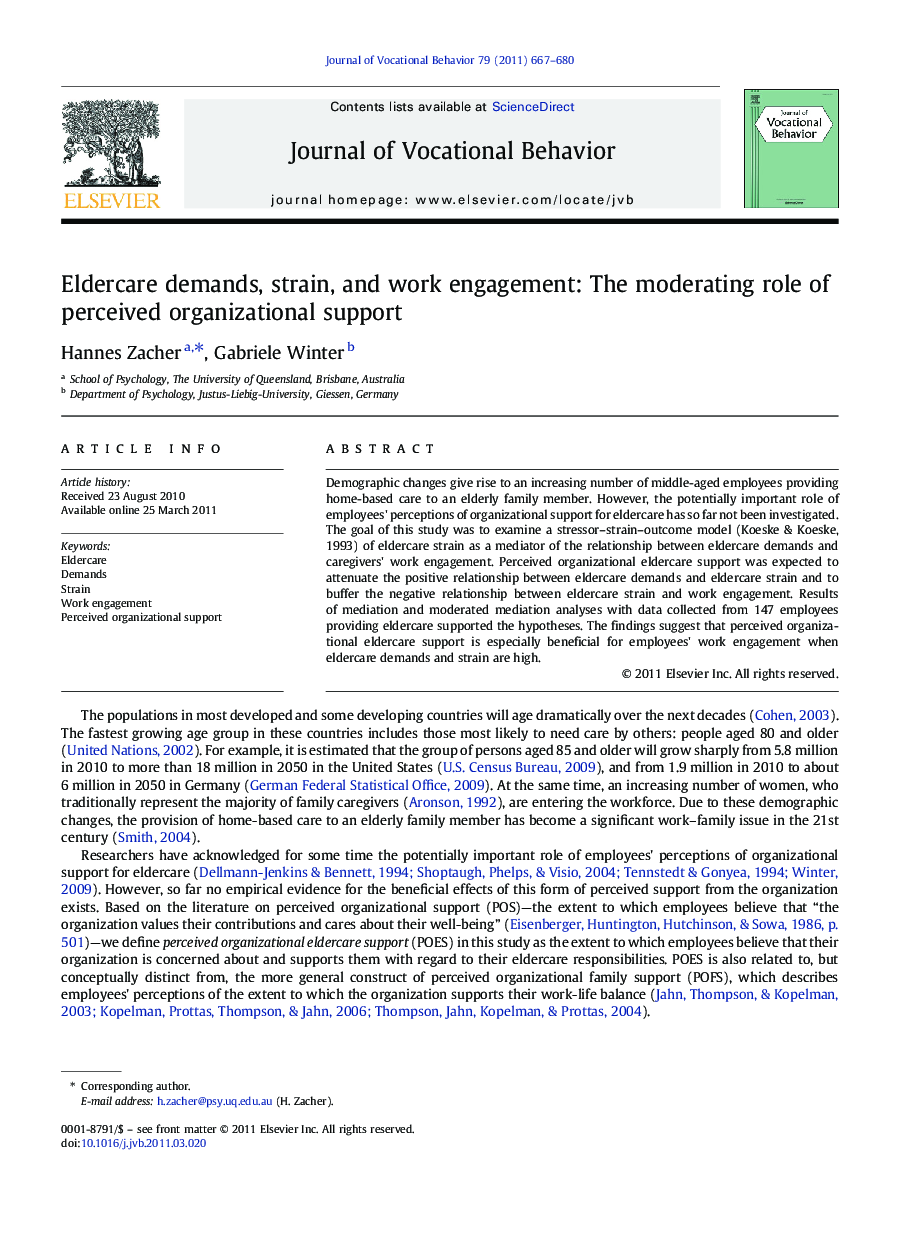| Article ID | Journal | Published Year | Pages | File Type |
|---|---|---|---|---|
| 887144 | Journal of Vocational Behavior | 2011 | 14 Pages |
Demographic changes give rise to an increasing number of middle-aged employees providing home-based care to an elderly family member. However, the potentially important role of employees' perceptions of organizational support for eldercare has so far not been investigated. The goal of this study was to examine a stressor–strain–outcome model (Koeske & Koeske, 1993) of eldercare strain as a mediator of the relationship between eldercare demands and caregivers' work engagement. Perceived organizational eldercare support was expected to attenuate the positive relationship between eldercare demands and eldercare strain and to buffer the negative relationship between eldercare strain and work engagement. Results of mediation and moderated mediation analyses with data collected from 147 employees providing eldercare supported the hypotheses. The findings suggest that perceived organizational eldercare support is especially beneficial for employees' work engagement when eldercare demands and strain are high.
Research highlights► Eldercare-related strain expalins the negative relationship between eldercare demands and caregivers' work engagement. ► Caregiver's perceived organizational eldercare demands on strain. ► Perceived organizational eldercare support reduces the negative effect of strain on work engagement.
